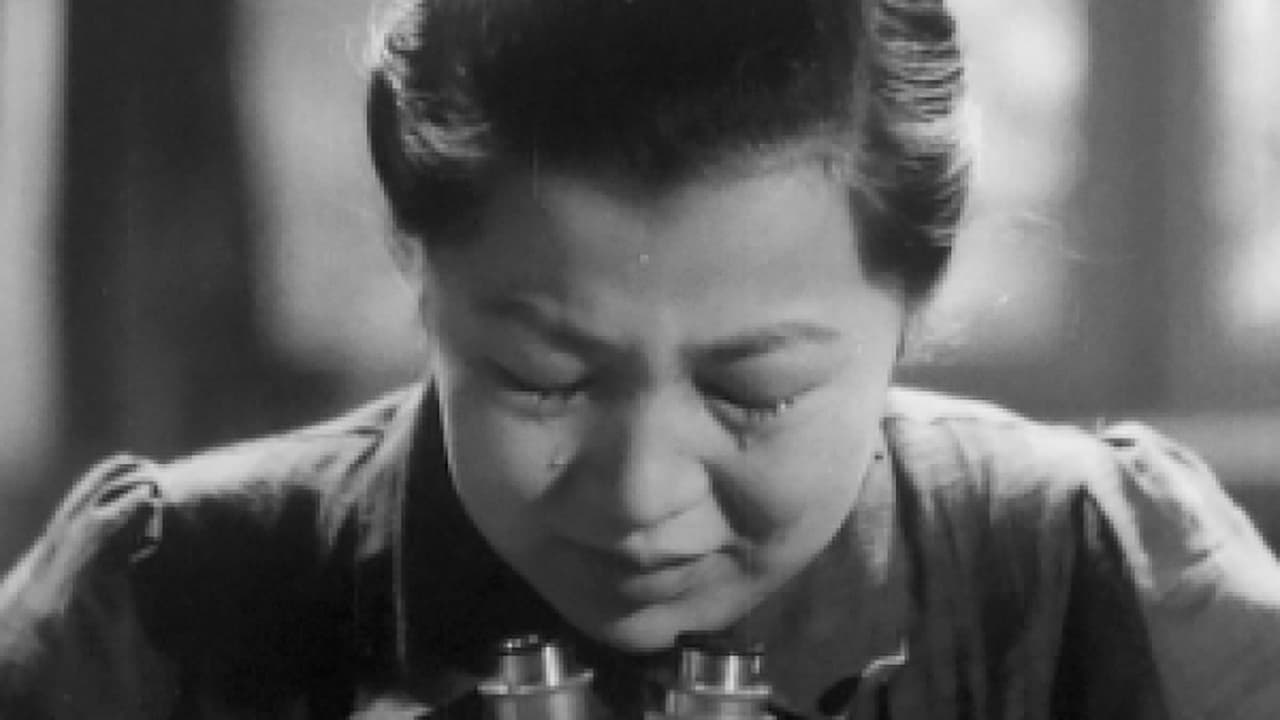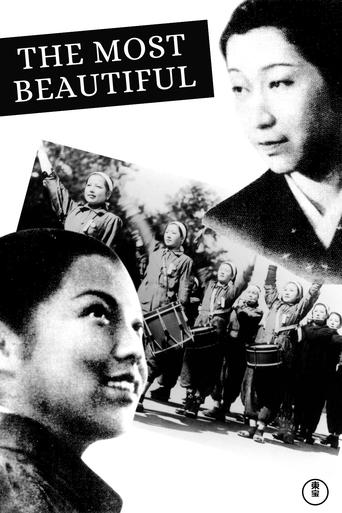



Lack of good storyline.
a film so unique, intoxicating and bizarre that it not only demands another viewing, but is also forgivable as a satirical comedy where the jokes eventually take the back seat.
View MoreThe film's masterful storytelling did its job. The message was clear. No need to overdo.
View MoreBlistering performances.
THE MOST BEAUTIFUL is a WW2 propaganda movie from Japan. It has few redeeming values apart from a level of realism you don't normally see in such productions, but the story is very slight and the events depicted are so slowly-paced as to make it a chore to sit through. The story follows a group of female workers at a factory making periscopes, and it narrows in on a handful of characters as they encounter conflict and personal struggle in their bid to do their best for their country. Sentimental stuff, then, but with more grit than syrup. This is only of interest for the presence of director Akira Kurosawa, forced to do his bit for the war cause, but compared to Hitchcock's rival wartime propaganda, this is low key and relatively uninteresting.
View MoreIn a material war, what your side lacks in material, you must make up for with spirit. Or so the Japanese told themselves during the war, and that is the driving point behind "The Most Beautiful.""The Most Beautiful" is the second film directed by internationally acclaimed Japanese filmmaker, Akira Kurosawa. Like "Sugata Sanshiro" before it, "The Most Beautiful" is a product of World War II. However, while one could characterize "Sugata Sanshiro" simply as a film with subject matter that was deemed safe for the time, "The Most Beautiful" is pure propaganda.The film follows a group of girls working in an optic lens factory during World War II. The girls' leader is one Watanabe-san (Yoko Yaguchi, Kurosawa's wife), a kind of Japanese Rosie the Riveter (Tokyo Rosie the Riveter?). When the factory's chief, Ishida-san (Takashi Shimura, "Seven Samurai") raises the girls' quota by 50 percent, the girls gripe that it wasn't raised by 100 percent like the boys'. The girls exert themselves to exceed their quota.The girls work to the point of exhaustion. This leads to mistakes and petty bickering. The girls play volleyball and sing patriotic songs to raise their morale.Akira Kurosawa was one of Japan's greatest directors and storytellers. This film is distinctly Kurosawa with the director's characteristic wipes and long takes. However, as a piece of storytelling, "The Most Beautiful" is a failure. That is not to say that there are no humorous moments or likable characters, but no character experiences the kind of dynamic change that drives good fiction.The film focuses mainly on the Watanabe character, who remains static throughout. She is the hardest, most dedicated worker at the beginning of the movie, and she remains so at the end. She sacrifices sleep to find a defective lens, and even stays away from her dying mother's bedside to work. No conflict can shake her dedication. There are minor external conflicts throughout the movie that Watanabe-san straightens out nicely by virtue of her dedication to her job."The Most Beautiful" is an important film in terms of historical context. Rarely do we get to see propaganda from the other side, and this film is a good illustration of extreme Japanese values at an extreme moment in Japanese history. The Japanese realized that they were at a technological disadvantage to the Allied Powers, but insisted that they could win by virtue of their spirit (apparently they weren't counting on American boys having spirit too). Militaristic slogans adorn the factory. The girls adhere to Zen Buddhist values as they emphasize hard work above all else, while the boys sing a militaristic song hoping for the "destruction of America and Britain."While "The Most Beautiful" is an important work in a historical sense, it is unworthy of Kurosawa's later, greater films.
View MoreIchiban utsukushiku (1944) 'THE MOST BEAUTIFUL' is Akira Kurosawa's tribute to Japanese Women who supported the war effort (WWII) at the 'Home-Front'. It is analogous to films made in other countries at that time. The nations that participated in the conflict all called upon Women too help in the manufacturing process. Some successfully like Great Britain, Soviet Russia and the U.S.A. Others like China, Fascist Italy or Nazi Germany less so, with Imperial Japan falling in between. Not from lack of effort, but of resources.Like LETTERS FROM IWO JIMA (2006) the film shows the war from the Japanese perspective. This is a propaganda film. That does not invalidate its message compared with the other participants in the conflict, it is just another point of view, made in wartime. The Women work in a optical factory which could pass for a 'Dickensian Workhouse'. Their work is important and they know it. The pressure of increased productivity with limited resources is clearly shown. It effects them all emotionally, physically and psychologically. The Men of the factory for the most part are unseen drones, except for the managers of the plant. They take a sensitive interest in the well being of their Female staff, without taking advantage of them. The War is largely unseen, but you know it is out there and getting closer all the time. The Director could see the end was coming, even if the Imperial General Staff could not.The principal cast of Women actors are largely unknowns whose careers were brief before and after this film. They are all convincing in their roles and give believable characterizations. The only 'Star' recognizable too Western audiences would be the great TAKASHI SHIMURA. SHIMURA was a 'jake of all trades' for the TOHO Studios, Japan. His acting range spanned Business Men, Criminals, Detectives, Samurai and Scientists. Films of note, SHICHININ NO SAMURAI (1954) 'The Seven Samurai', GOJIRA (1954) 'Godzilla', CHIKYU BOEIGUN (1957) 'The Mysterians' and YOJIMBO (1961) 'Yojimbo, The Bodyguard'.Those who have TCM or a well stocked local Library can take advantage of the films of AKIRA KUROSAWA and they should.
View MoreThis is a great movie - a must-see. I saw it without subtitles, and my Japanese wasn't good enough to catch most of the dialog, but the raw emotional power of the cast and of the imagery made it easy to follow - completely engrossing, in fact. The story is about a group of women factory workers in WWII Japan, and how each one must overcome whatever personal hardship they face to help the group succeed. The sense of being swept up in a titanic struggle, and the almost superhuman selflessness and group cohesion that that breeds, are the same themes treated in "Twelve-O'clock High". The two movies would make an enlightening double feature. One image sticks with me: although it's not focused on, throughout the movie you see the women carefully taking off their shoes and placing them neatly by the door as they come in to the dormitory, and you see them carefully put them on as they leave. During one scene, when a girl is returning from the hospital, everyone rushes to greet her. Kurosawa cuts to a shot of the shoes, as they are thoughtlessly trampled by the women eager to meet their friend.
View More